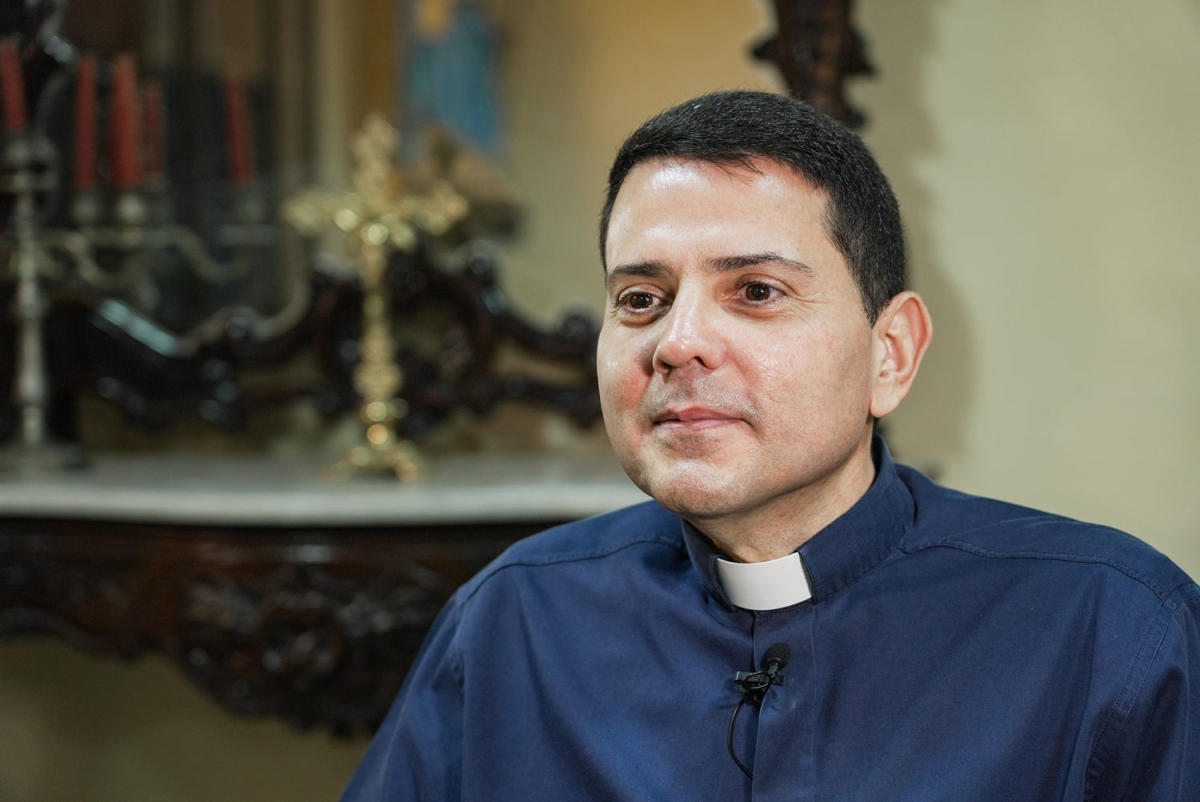HAVANA – The Catholic Church in communist-ruled Cuba, which has played a key role in resolving political tensions in the past, is proposing a national dialogue to help resolve the economic crisis gripping the island .
In an interview with NBC News, Father Ariel Suárez, assistant secretary of the Conference of Catholic Bishops of Cuba, said that “if the different political actors agree, they can provide a space for dialogue, a meeting place, so that all the different points of view . .. can help find concrete solutions that people need.”
He said several positions need to be included. “I think we should finally say with more clarity that Cubans with different views and with different perspectives can love Cuba,” Suárez said. “And it is important to put above all these differences the love for Cuba and the desire to improve the lives of its people now and in the future.”
Suárez’s interview echoes a statement from the diocese of Cuba’s third largest city, Holguín, represented by Episcopal Conference President Emilio Aranguren.
“As a Church, we are committed to supporting the creation of spaces for dialogue where different sectors of society can participate to find paths that will help us move forward with a calm and hopeful spirit,” the statement said.
The statement was released days after rare protests broke out in several Cuban cities in March over the poor economic situation on the island, including shortages of food, medicine, power and gasoline. Some called for political change.
Lillian Guerra, a professor of Cuban history at the University of Florida who interviewed Aranguren for her book “Patriots and Traitors in Revolutionary Cuba,” said he is “uniquely positioned to speak on behalf of the local population.”
Guerra, who spent time with Aranguren, described him as very humble. For nearly a decade, his office sponsored a soup kitchen that fed hundreds of poor people in Holguín. She said he is very “unusual and unique” because of his journey that began as a pastor in the city of Santa Clara in the 1970s. He is “such a local witness to the evolution of Cuban society from the deep Soviet period of the 1970s to the present.”
In 1961, Cuba became an atheist state, confiscating church properties, including schools, and expelling about 900 priests, according to Guerra. She said they could do that because most of the priests were not Cubans but born in Spain. Over the next three decades, the Cuban state condoned discrimination against Catholics. Cuba remained an atheist state until 1992, when the government amended the constitution and made it secular.
Pope John Paul II made history in 1998 as the first pope to ever visit the island. His famous statement, “May Cuba, with all its wonderful potential, open itself to the world, and may the world open itself to Cuba,” gave hope to many Cubans. They saw his visit and statement as a sign of new opportunities on the horizon.
In 2010, the Catholic Church brokered a deal for the Cuban government to release imprisoned dissidents, something that helped thaw relations with the US during Barack Obama’s presidency. The Catholic Church also played an important role in the historic rapprochement between the two countries.
Guerra said that since the revolution, the church in Cuba has offered “alternative values,” including a belief in freedom of choice, thought and speech.
“They were completely the opposite of what the schools, newspapers, the government and the laws said and say,” the professor noted.
Guerra said the church has planted seeds in non-religious programs, such as Cuba Emprende, that support entrepreneurship and run soup kitchens.
“So we may not notice it, but the church is alive and present. And the fact that you have the church doing things in so many different locations that aren’t just saying Mass means that the church has already established itself as an alternative space for Cubans to develop and work against the government,” said Guerra.
Ahead of Sunday’s Mass, and for the rest of the Easter season, which ends on May 28, the Bishops’ Conference asks its faithful to pray for the economic crisis and ask for “real and true solutions.”
Suárez said the bishops have extended invitations to prayer “to find solutions so that we can get out of this dire situation, so that the country’s officials can have wisdom and courage in making decisions that benefit the lives of the people. ”
NBC News has contacted Cuba’s International Press Center and the embassy in Washington for comment on the church’s proposals.
Carmen Sesín reported from Miami and Orlando Matos from Havana.
This article was originally published on NBCNews.com






